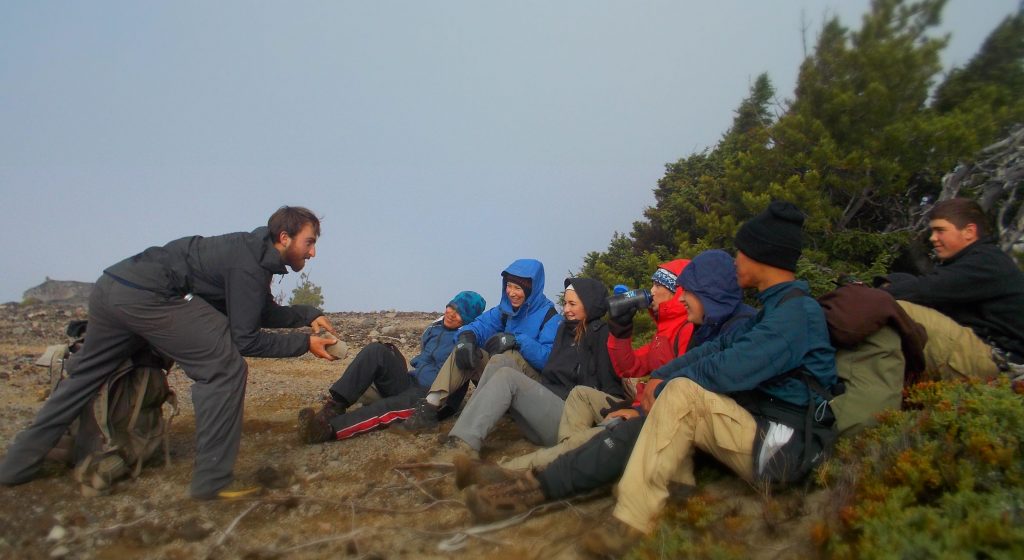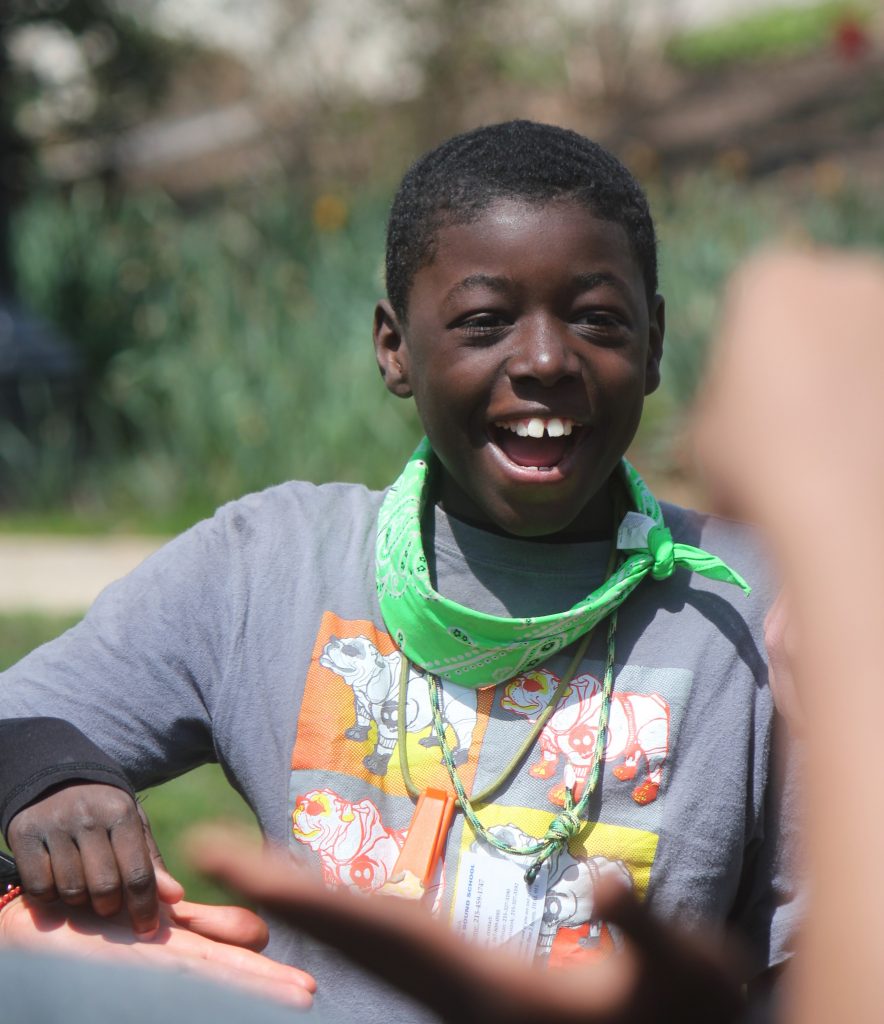At NYC Outward Bound Schools, we instruct three to five-day long expeditions for public school students and teachers. Students are accompanied by at least one teacher per small student group, and we often see principals, school leaders and additional teachers participating as well. A common phrase I hear from teachers is, “Wow, this student seems completely different in the wilderness!” While all students can benefit from an outdoor, experiential learning expedition, there are often a few students who really shine in the new environment, showing sides of themselves that may have been hidden in the classroom.
On a recent course I instructed, a sixth grade student who I had been told was incredibly quiet found an immediate connection with nature and our experiential curriculum. As we hiked to the low-ropes challenge course, this student began opening his bag frequently and putting things inside of it. I watched from afar with curiosity. When we stopped for a break he came up to me, tapped me on the shoulder and opened his bag. It was completely stuffed full of leaves. Smiling like only beautiful leaves can make you smile, he said “I found these!” This moment sparked my understanding of my student group, and allowed my co-Instructor and me to rethink our curriculum. We amplified the nature-learning aspect of our course, creating more opportunities to learn about leadership through rocks, leaves, plants, caterpillars and turkeys.

At Outward Bound, we have educational goals and outcomes. Each course has learning targets, curriculum, lessons and evaluative feedback. However, because of the nature of outdoor education—flexibility, spontaneity and adaptation are an important part of the outdoor education process. Changing curriculum to fit the students’ needs is a daily practice. As educators, we see if our students are emotionally present, physically active or socially uncomfortable, and all of these observations inform our teachings. We are experts at shifting and adapting the learning based on our group, and our students have the opportunity to learn curriculum in a way that is intended especially for them.

I know that teaching in this way is not a possibility for every educator. It is a unique quality of outdoor education that I, as an educator, cherish. Although not all educators are granted the flexibility to shift their curriculum in order to fit the moment, they can still have the opportunity to see their students in this type of environment. And having this opportunity as a student or an educator can have an impressive positive impact on both teaching and learning.
Some of the ways that creative freedom has positively influenced my work as an outdoor educator are listed below:
- I am always able to address my students’ needs in the moment (whether it’s fun, freedom, power, belonging, or hunger)
- I can adapt my lessons to fit the learning styles (visual, auditory, kinesthetic, writing etc.) of the group
- I can teach lessons at different times depending on the group energy
- I can use nature, animals, movement, games, physical challenge, mental challenge and social dynamics to teach
- I can collaborate and get regular feedback from a teacher who is familiar with a group of students
- I can address conflict as it arises
- I can use the students’ natural assets and curiosity to fuel and shift my curriculum
My leaf-lover student presented opportunities to shift our leadership curriculum to fit the curiosity and learning he was already doing on his own. And because of this moment, his teacher was able to see him in a new light and better integrate him into their community. Even if only for a week, experiential education can change the dynamic of a student group drastically. Because of our creative freedom as educators, this group of students who began their course unsure of their sense of community, by the end, felt bonded by their connection to animals, nature and their teacher. And the leaf-lover later needed a full team of support when saying goodbye to the caterpillar he had met by the campfire on the final night.

Photo by Rebecca Hesselink
About the Author
Rebecca Fenn is an outdoor educator, originally from California, who instructs for NYC Outward Bound Schools and North Carolina Outward Bound School. After graduating from University of Chicago with a major in Human Development, Rebecca worked in college admissions and then began her journey toward outdoor education. She became the Life After Eagle Rock Fellow at Eagle Rock School and Professional Development Center, a wilderness-based boarding school in Estes Park, Colorado. There she taught at-risk students “Math for Life” and served as both a college counselor and as a vocational counselor to prepare them for life after Eagle Rock. Upon receiving a Master’s Degree in Education Policy from Harvard, she decided to delve deeper into the Expeditionary Learning model by taking on the challenge of becoming a Field Instructor for Outward Bound. Rebecca is a cartoonist, artist and writer, and loves the challenges and rewards of working with youth in the outdoors. She is always interested in learning more about educational systems, cultures and practices in the United States.
OTHER POSTS YOU MAY LIKE
Read More
Read More
Read More




